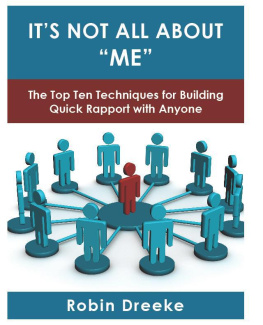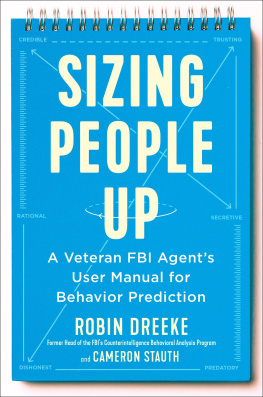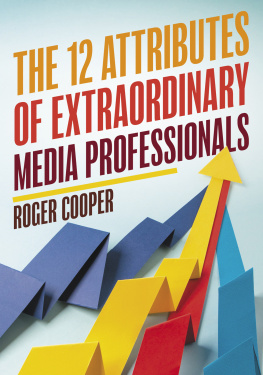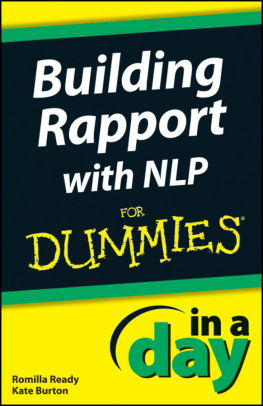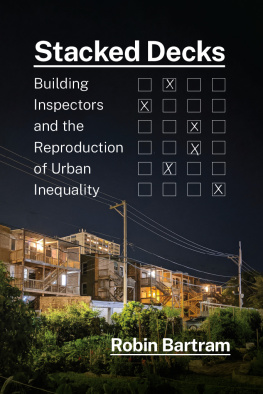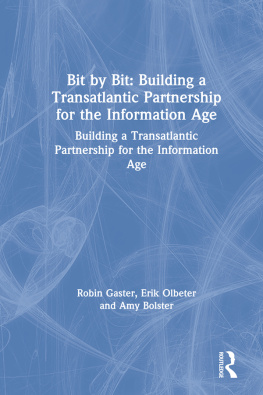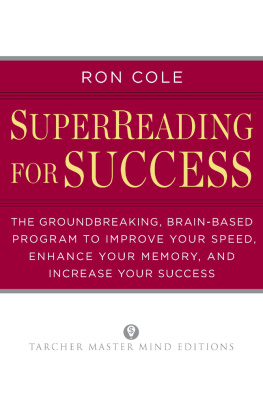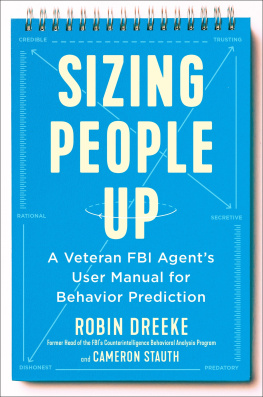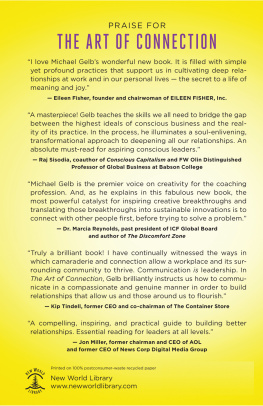Introduction
What if I told you there was a way to gain the skills of master communicators? Skills that can enable you to induce any stranger to divulge inner-most secrets, banking information, or even take actions against your best interests, all voluntarily? These people dont have any different ability or skills than you have or use every day. The difference is they know what these ten techniques are and how to employ them effectively and consciously.
This book is unique because it contains a very actionable process for how to treat individuals exactly how we all wish we were treated every minute of every day of our lives. This book is also different because this process of how to truly focus on others is written from my point of view and my experiences as a former Marine Corps officer, FBI special agent and program manager of the FBIs elite Behavioral Analysis Program. The leadership and interpersonal skills I needed to develop as a Marine Corps officer and an FBI agent are capsulated in this workbook formatted guide.
I am going to share what I have found is the most successful way to face all aspects of life, both personal and professional. This process has been honed from years of field experience, as well as research into social and evolutionary psychology. The results from the process will range from simply making those around you truly enjoy your company and seek to spend more time with you all the way up to influencing others to take actions you want them to take. Regardless of your individual goals, the key is to make it all about them.
Studies have demonstrated time after time that the happiest individuals in the world are the ones with meaningful relationships. Those who have both a wide array of friends and acquaintances as well as relationships of deep meaning with a few acquaintances tend to be happier in life than those who have placed items and material accomplishments as their individual goals for happiness. These ten simple steps, whether used completely or in parts will have a profoundly positive impact on the quality of any relationship in your life, whether the relationship is at home, work, play, or simply talking with strangers.
As technology has moved forward and brought the world closer together through social networking sites like Facebook, Twitter, and numerous other online social sites, many of the one-on-one skills utilized to develop rapport and deeper relationships is falling prey to the ease and convenience of just turning off a computer when something isnt said just right or one of your hundreds of contacts / friends on Facebook says something that annoys you. The easy fix is to just pay attention to one of the other of hundreds of people you are in contact with on a daily basis in one way or another. One of the critical elements missing from this wonderful technology that has brought individuals from all over the world together is the ability to have a meaningful one-on-one conversation.
The art of conversation and developing rapport with any individual, whether a friend, loved one, work associate, or stranger, comes down to the ability of at least one of the individuals dialoging to do at least one of the ten concepts I am going to illustrate in this book. As you read each section that highlights one of the ten techniques, think back to a good conversation or relationship that you have had throughout your life. I will bet that if the conversation was enjoyable to you, whether you were speaking to a friend or stranger, at least one of the ten elements was present. A conversation that has two to four of the elements will be one you will remember for a very long time. A conversation that has nine to ten of the elements will be remembered for a lifetime.
Identifying the Need
I will start our journey through this process by first stating that I discovered how to identify these steps because I desperately needed it. Discovering these tools and techniques was and continues to be a great challenge and adventure. I have found that I generally say Im sorry more than most people I know. I think this is true because I sometimes stray from my own process, as well as I am highly aware of myself and the impact I have on others through nonverbal observations. Unlike the great many wonderful people in my life, I was not designed by either my biology or any higher power to be as strongly people oriented as others. Studies of personality assessments such as the Myers Briggs Type Indicator (MBTI), the Five Factor Model, the Personality Discernment Instrument (DISC), and many others identify that about 50% of the population tends to be people oriented. These are the types of individuals who ask you about your day and family, wait to hear the answer, and truly care about the answer. The other 50% of us roll through life generally a bit more self-absorbed and unwitting to the emotional damage we cause by our insensitive comments, our self-centered conversations, or our inability for empathy or personalization.
Regardless of the fact that I care very deeply for many people and feel great compassion and empathy, at times, my ability to accurately communicate those feelings has fallen short of the mark. For many individuals such as myself, the fact that the way you feel about a situation or person can look, sound, and feel very incongruent with those you are communicating with. This book will help people naturally communicating effectively as well as those who want to improve their ability to make good connections, communicate effectively, and even influence individuals if they so desire.
My first awareness of needing to improve my skills and realizing it is not all about me occurred while I was a midshipman at the U.S. Naval Academy. I am a very outgoing person who enjoys meeting strangers and having lively discussions on just about any topic. I find people fascinating and intriguing and really enjoy getting to know them. Unfortunately, when I was 18 years old I also had a very bad habit of being judgmental of others. Having a big mouth and voicing my opinions openly didnt help matters. I had a great deal of self-confidence and thought that if the whole world were just a bit more like me it would be perfect and we would all get along wonderfully. I also felt compelled for some reason to voice my dissent of those who didnt fit into my perception of the perfect world.

